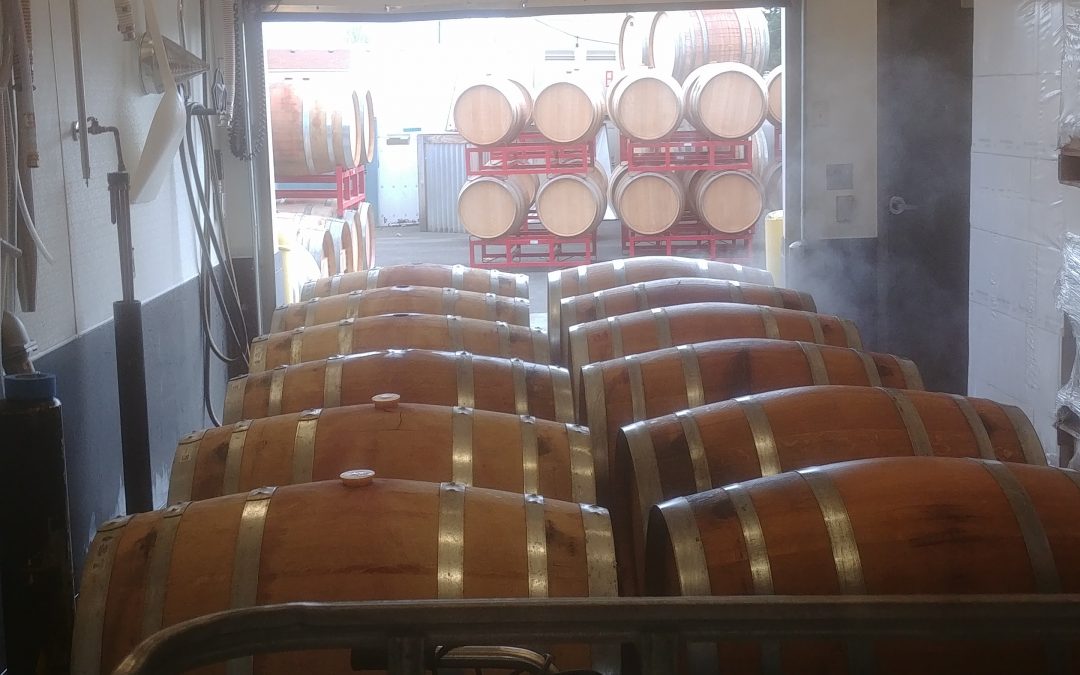How Do You Store Your Wine?
If we asked the average person, ‘how do you store your wine?’, many will say their refrigerator, kitchen cupboard or a wine-rack. Although acceptable for short-term buys, where you’re likely to consume your wine pretty soon, for long-term buys, they are doing it all wrong.
We’ve teamed up with Elite Wine Refrigeration to share some guidance on storing and persevering wine. From the ideal storage conditions, to taking wine storage seriously, if you’re looking for a longer shelf life, or have a memorable bottle as a keepsake, this blog collaboration is for you.
See what you can do, in your home, without a wine cellar to preserve your wine and experience it’s true, bottled up value.
5 steps to ideal wine storage conditions
There are so many myths linked to wine storage and consumption. So far, these misconceptions may have controlled your experience with wine. We hope that these easy to follow tips, achievable from your own home can improve your future experiences with our favorite tipple.
Kicking out unnecessary vibrations
Vibrations, manhandling and unnecessary movement can damage the body of your wine. When looking at a wine cellar, wine bottles will very rarely be moved. They will be set in their home, for the long-term, until they are ready for serving preparations. Although this may be difficult to control in your home, it is important that you kick out any necessary vibrations.
As we shared above, a common storage place for wine is the refrigerator. Consider how many times a day you open and close the refrigerator, causing unnecessary vibrations. This will cause layers in your wine, dividing the natural balance of ingredients and chemicals, along with interrupting the ageing process.
Think about placing your wine in a quiet area, with minimal footfall, following the ideal conditions, outlined in this blog.
Controlling the perfect temperature
Do you know what oxidization is? Oxidization is where an undesirable level of air exposure is experienced, causing a chemical imbalance in wine. This can happen if wine is stored in low, very cold temperatures, sometimes resulting in non-consumable wine.
On the other end of the scale, high temperatures can interrupt the organic ageing process of wine, reducing its value. Ageing is sought-after, known to increase the quality and flavor of wine. This natural process can be speeded up, resulting in a significantly reduced quality.
To avoid any issues with your wine’s quality, storing your wine, no matter its color or brand at 12°C will be recommended. From here, once ready to serve, you can transition your wines into their optimal serving temperatures, usually differing for red wines.
Through a high-quality wine cooler, temperatures can consistently be controlled.
Saying goodbye to lingering odors
Although new news to many wine drinkers, surrounding, lingering odors can damage your wine. Think about it, over time, if consistent smells are experienced, they will commonly become embedded into your soft furnishings. This is exactly how you should envision your wine.
Wine is secured by its bottle. However, if a cork has shrunk through low humidity or a bottle has been opened, those lingering odors can have easy access. From common kitchen fragrances, to musky odors from mold and moisture, unpleasant smells can change the senses of your wine, including its taste and aroma.
Your favorite wine, down to its fruitiness or warmth may soon be transformed by odors. Say goodbye to this possibility by controlling your storage conditions.
Controlling humidity levels
Did you know that humidity levels can also impact the taste, body and lifespan of your wine? For the most effective chance of preserving your wine, humidity levels should fall between 55-80%. Along with protecting the ingredients and formation of wine, consistent humidity can prolong the lifespan of your wine by motivating organic ageing.
Low humidity levels can cause oxidization, commonly down to a dried-out cork and surrounding environments. Resulting in unpleasant and dissatisfying tastes, wine will likely be non-consumable.
Through high humidity levels, excess moisture is likely, resulting in mold and mildew. This can contaminate your wine, making it go off sooner than expected.
Although controlling humidity can be difficult, by monitoring the temperature of your wine, along with the surrounding climate, you’ll have a greater chance of maintaining ideal humidity levels.
Monitoring unnecessary UV light
UV light can also unfortunately decrease the quality of your wine. Although many will believe that UV light cannot surpass glass, it unfortunately can, penetrating through and causing damaging effects.
Although a depth of UV light is likely in an average household, unnecessary exposure should be monitored. By storing your wine in a dark environment, with minimal footfall, you’ll have the chance to reduce exospore levels.
UV light can result in discoloration, commonly a sign of damage, along with reducing shelf-life. Although wine is known to advance in value, as it matures, this is through an organic process. If your wine does go off, this cannot be reversed, damaging the existing taste, smell, color and value.
Why should wine storage be taken seriously?
If you purchase wine and consume it within the short-term, storage requirements are reduced. Yet, if you own a wine collection, hope to keep your purchase for the long-term, or own a high value, bespoke wine, storage should be taken seriously.
Some wines are very expensive, down to their ingredients and manufacturing process. By neglecting ideal storage conditions, the value of this wine will drop, making it a worthless purchase. Not to mention the annoyance of opening a brand-new bottle of wine, to be welcomed by mold or unpleasant tastes.
Take your wine storage seriously by:
- Kicking out unnecessary vibrations surrounding your storage location
- Controlling optimal storage temperatures, at 12°C
- Protecting your wine by saying goodbye to lingering odors
- Controlling humidity levels between 55-80%
- Monitoring unnecessary UV light exposure
Through these tips, kindly shared by wine storage experts, Elite Wine Refrigeration, you’ll have the chance to properly store your wine, resembling the conditions of a wine cellar. Maintain its value and taste, while enhancing its lifespan through preservation.


Recent Comments